Research
Aquatic Ecology
Collaboration and Outreach Opportunities
In support of CAWS mission, faculty, staff, and students advance aquatic and watershed sciences through collaborative educational and research programs. These include:
Global Lake Ecological Observatory Network
The Global Lake Ecological Observatory Network (GLEON) is a grassroots network of limnologists, ecologists, information technology experts, and engineers who have a common goal of building a scalable, persistent network of lake ecology observatories. Data from these observatories will allow us to better understand key processes such as the effects of climate and landuse change on lake function, the role of episodic events such as typhoons in resetting lake dynamics, and carbon cycling within lakes.
National Ecological Observatory Network
The National Ecological Observatory Network (NEON) will collect data across the United States on the impacts of climate change, land use change and invasive species on natural resources and biodiversity. NEON is a project of the U.S. National Science Foundation, with many other U.S. agencies and NGOs cooperating. NEON will be the first observatory network of its kind designed to detect and enable forecasting of ecological change at continental scales over multiple decades. The data NEON collects will be freely and openly available to all users.
Watershed Education and Research Center
Research Facilities and Centers

Geospatial Analysis Center
The Geospatial Analysis Center (GAC) in Shideler Hall provides a wide range of software, high capacity microcomputers, digitizers, databases, and output devices dedicated to acquisition and analysis of spatial information (GIS, satellite remote sensing). The GIS Laboratory has a full-time director, and instruction is available at several levels.
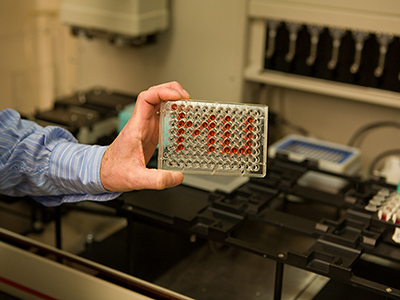
Bioinformatics and Functional Genomics
Miami University's Center for Bioinformatics and Functional Genomics is a state-of-the-art research and training facility available to all members of the university. The center also maintains equipment to assist in bioinformatic and functional genomic research.
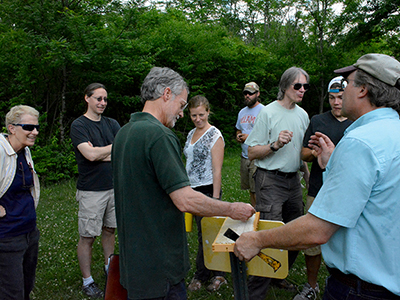
Ecology Research Center
Miami University's Ecology Research Center, located less than 3 miles from campus, is a 175-acre field site dedicated to research and education in ecology and environmental science. The center is a focal point for faculty and student research and field exercises for undergraduate and graduate-level courses.
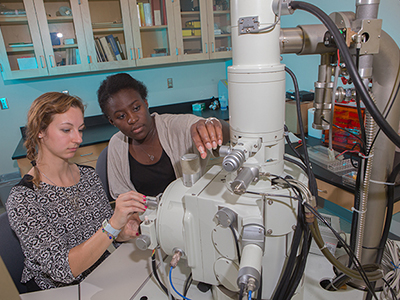
Center for Advanced Microscopy and Imaging
The Center for Advanced Microscopy and Imaging is an all-university research, teaching and service facility. The facility houses 2 scanning electron microscopes, 2 transmission electron microscopes, 2 laser scanning confocal microscopes, a deconvolution light microscope, and a wide-field multimode light microscope. The facility also has a diversity of computer and digital imaging/analysis capabilities.
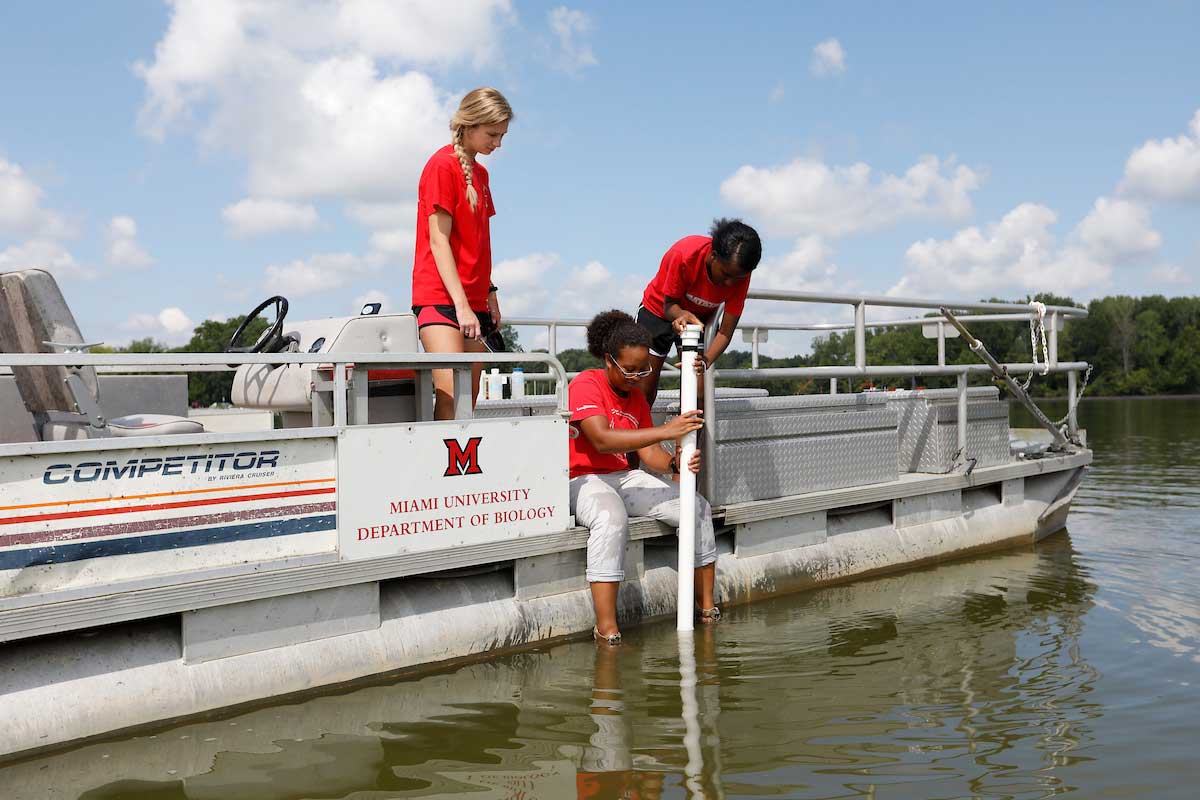
Hueston Woods and Acton Lake
Hueston Woods State Park, located 5 miles north of Oxford, comprises approximately 1200 hectares (2950 acres). Hueston Woods State Nature Preserve consists of over 800 hectares (200 acres) representing the beech-maple forest that once covered much of Ohio. Acton Lake is a 250-hectare reservoir situated in the heart of Hueston Woods State Park.Acton Lake is part of an Ohio-wide system of reservoirs that Miami ecologists are investigating to understand the effects of agricultural practices on the structure and functioning of reservoirs. Long-term, up-to-date data sets are key to our understanding and they have installed a buoy at Acton Lake now that provides real-time data on weather variables (e.g., air temperature, wind, sunlight) and limnological variables (e.g., water temperature, pH, dissolved oxygen, chlorophyll).

Lacawac Sanctuary Field Station
The Lacawac Sanctuary Field Station is a private 500-acre preserve (in northeastern Pennsylvania) devoted to research, public education, and conservation. Within its confines the sanctuary supports diverse aquatic and terrestrial habitats including a 52-acre natural lake. The entire watershed of Lake Lacawac is owned and protected by the sanctuary. Such a well-protected lake, that is relatively unimpacted by humans, provides rare "hands-on" learning and long term research opportunities.
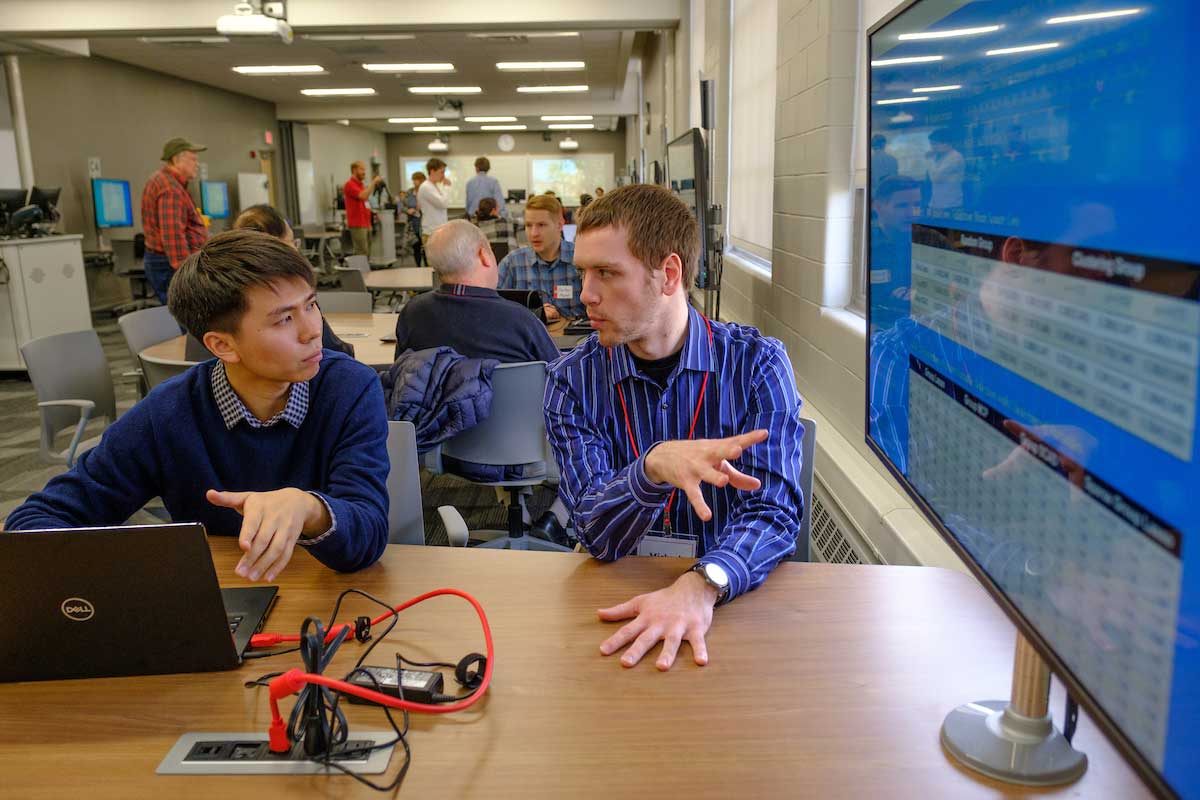
Statistical Consulting Center
The Statistical Consulting Center (SCC) offers statistical consulting to faculty, staff, graduate and undergraduate students conducting research at Miami University. The SCC is a group of statisticians who provide consultation on all aspects of data collection, analysis and interpretation. The center is funded by the university to promote high quality statistical consulting to researchers and is staffed by a manager and full-time statistics faculty in the Department of Statistics.